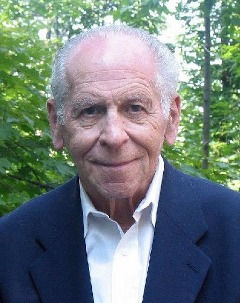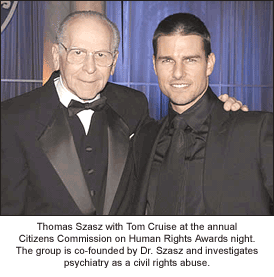
From my files Friday: School is out for the summer but here’s a test to check your mental health knowledge. I first published this in December 2010. Enjoy!
Eleven Questions about Mental Health
Question one: A recent president — not President Obama — appointed a commission to study mental illness. Critics immediately attacked that commission and recruited a celebrity to blast it. What president appointed The President’s New Freedom Commission on Mental Health: Achieving the Promise: Transforming Mental Health Care in America and who was the celebrity who criticized it?
- President George H.W. Bush and Tom Cruise
- President Bill Clinton and John Travolta
- President George W. Bush and Patch Adams
- President George W. Bush and Britney Spears

Question two: What is the “largest, public mental health facility” in the United States? St. Elizabeths Hospital in Washington D.C.
- Bellevue Hospital in New York City
- Twin Towers Correctional Facility in Los Angeles
- Oregon State Hospital in Salem, Oregon
Question three: What is the CATIE study and why was it controversial?
- The CATIE study examined the use of illegal drugs by persons with mental disorders and discovered that persons with schizophrenia had a ten percent higher risk at becoming addicts than those without it.
- The CATIE study was an epidemiological survey that discovered the parasite Toxoplasma gondii commonly found in Cat feces could be linked to schizophrenia.
- The CATIE study compared the newer and more expensive “atypical” drugs, Zyprexa, Seroquel, Resperdal and Geodone , to the older and cheaper drug Trilafon. The study found the older drug worked almost as well as the newer ones.
- The CATHIE study was a survey by Dr. Felix Cathie that showed 16% of inmates in jails and prisons have a diagnosed mental disorder.
Question four: What organization bills itself as “the largest scientific organization in the world focusing on mental health” and who runs it?
- The National Institute of Mental Health, directed by Dr. Thomas Insel
- American Psychiatric Association, presided over by Dr. Jack Barchas
- The Substance Abuse and Mental Health Services Administration (SAMSHA), administered by Pamela S. Hyde
- The Stanley Medical Research Institute, directed by Dr. E. Fuller Torrey
Question five: What is an ACT team?
- Aggressive Cognitive Therapy Teams –a team treatment approach that involves two or more psychiatrists in a hospital setting using a “good cop/bad cop” approach to treat patients.
- Action, Care, Treatment Teams – grassroots advocates who lobby for improved mental health care services.
- Acute Care Treatment Teams – specially trained EMTs with mental health training who ride on ambulances.
- Assertive Community Treatment Teams– community based, mobile, treatment teams that provide a host of services to a person with a mental disorder and/or substance abuse problem by visiting them rather than requiring them to come into an office.
Question six: What is the “Memphis Model?”
- A treatment program that uses vitamins rather than medications to treat persons with mental health problems.
- A reference to that city’s Crisis Intervention Team program, considered the gold standard for CIT law enforcement training.
- It’s a nickname for Shirley Osgood, a former Miss America and runway model who raises money for mental health causes.
- A city treatment program that uses art and stage productions to educate the public about mental illnesses.
Question seven: What is “Housing First?”
- Housing First provides persons with mental disorders vouchers to rent apartments after they remain drug or alcohol free for 30 days.
- Housing First gives a homeless person housing without requiring him/her to be drug and/or alcohol free.
- Housing First provides free housing exclusively to pregnant women who have mental health problems.
- Housing First is a grassroots lobbying organization that wants to end homelessness in ten years.
Question eight: Match the brand name of the most commonly prescribed anti-psychotic drugs with that drug’s chemical component?
A. ziprasidone 1. Zyprexa
B. olanzapine 2. Seroquel
C. quietiapine 3. Trilafon
D. risperidone 4. Resperdal
E. clozapine 5. Geodone
F. perphenazine 6. Clozaril
Question nine: The National Alliance on Mental Illness, the nation’s largest grass roots mental health advocacy organization, recently asked on Facebook “Who has most influenced changes in American mental health care during the past 100 years?” Pick out the three individuals who were NOT on that list.
- Kay Redfield Jamison, a clinical professor and author who lives with bipolar disorder.
- Karl Menninger, founder of the Menninger Clinic and one of the strongest voices for advocating that mental illness was an illness like any other.
- Rosalynn Carter, wife of former president who hosts the annual Rosalynn Carter Symposium on Mental Health Policy.
- Glenn Close, actress who launched the mental health advocacy group BringChange2Mind.
- E. Fuller Torrey, founder of the Treatment Advocacy Center and advocate for Assisted Outpatient Treatment.
- Dorothea Dix, activist most responsible for creating the first generation of mental asylums.
- Elyn Saks, author of The Center Cannot Hold: My Journey Through Madness. She has schizophrenia.
- Judi Chamberlin, mother of the “nothing about us, without us” movement in mental health.
Question ten: In the PBS broadcast, Minds on the Edge: Facing Mental Illness,Miami Dade County Criminal Court Judge and mental health reformer, Steven Leifman says that our current mental health system is:
- “Working well but needs tweaking”
- “Is failing to help people in Florida stay out of jails and prisons”
- “Is the very definition of insanity”
- “Medieval in how it treats persons who are sick.”
Question Eleven: In my book, Crazy A Father’s Search Through America’s Mental Health Madness, a young woman with a severe mental illness named April Hernandez asks rhetorically: “What happens to people like me?” She then says:
- “There’s jail, there’s your parents, or you die.”
- “There’s medication, housing, and peer support – but only if you are lucky.”
- “There’s recovery, but only if you get off your medications.”
- “There’s no going back to how you are after you get sick.”
A bonus question:
Who is the psychiatrist in this photo?
1. Michael Fitzpatrick, director of NAMI.
2. Fred Frese III, activist consumer and NAMI member
3. Thomas Szasz, anti-psychiatrist and author
4. Randle Patrick McMurhpy, forensic patient
5. Eric R. Kandel, Nobel winning doctor

ANSWERS:
1. President George W. Bush and Patch Adams
2. Twin Towers Correctional Facility in Los Angeles
3. The CATIE study compared the newer and more expensive “atypical” drugs, Zyprexa, Seroquel, Resperdal and Geodone , to the older and cheaper drug Trilafon. The study found the older drug worked almost as well as the newer ones.
4. The National Institute of Mental Health, directed by Dr. Thomas Insel
5. Assertive Community Treatment Teams– community based, mobile, treatment teams that provide a host of services for a person with a mental disorder and/or substance abuse problem by visiting them rather than requiring them to come into an office.
6. A reference to that city’s Crisis Intervention Team program, considered the gold standard for CIT law enforcement training.
7. Housing First gives a homeless person housing without requiring him/her to be drug and/or alcohol free.
8.
- ziprasidone (Geodon)
- olanzapine (Zyprexa)
- quietiapine (Seroquel)
- risperidone (Risperdal)
- clozapine (Clozaril)
- perphenazine (Trilafon)*
9. Glenn Close, Dorothea Dix and Judi Chamberlin.
10. “Is the very definition of insanity”
11. “There’s jail, there’s your parents, or you die.”
Bonus question:
Anti-psychiatrist Thomas Szasz, who with backing from the Church of Scientology, continues to attack mainstream psychiatry.





I got a 60% so I better brush up on mental health awareness info.
Terri